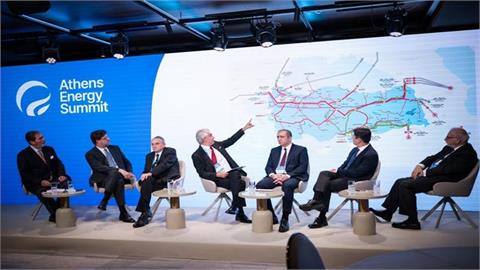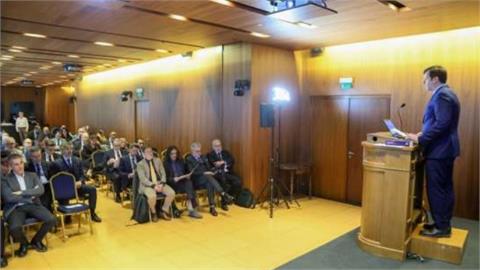IENE has just released a new Working Paper, entitled “The Hellenic countries’ role in the new Eastern Mediterranean-Persian Gulf geostrategic ‘Great Game’ and Region-Building”, authored by Dr. Thrassy Marketos, an IENE Visiting Research Fellow. Dealing with the geostrategic issue of the role of the Greek countries in the new Eastern Mediterranean-Persian Gulf Region, this newly published Working Paper (No. 32).
IENE has just released a new Working Paper, entitled “The Hellenic countries’ role in the new Eastern Mediterranean-Persian Gulf geostrategic ‘Great Game’ and Region-Building”, authored by Dr. Thrassy Marketos, an IENE Visiting Research Fellow. Dealing with the geostrategic issue of the role of the Greek countries in the new Eastern Mediterranean-Persian Gulf Region, this newly published Working Paper (No. 32), is available here. This analysis aspires to give a neo-realist approach to Greece’s strategic importance in the new regional international order, where the Mediterranean returns as a focal geopolitical space on a world level.
As the author notes, the modern Greek state -for the first time in its bicentennial history-, spans its interest toward its Middle East neighbors. Indeed, the synergies between the Gulf and the eastern Mediterranean theaters have grown substantially in recent years. Developments ranging from the Libyan civil war to the Abraham Accords have created a space in which the interests of eastern Mediterranean states, such as Greece, Cyprus, Egypt, and Israel, and Gulf states, like the UAE and Saudi Arabia, seem more aligned than ever before. Seemingly unrelated developments in areas like the energy sector are now interlinked in ways that further solidify the interdependence of the two regions.
According to Dr. Thrassy Marketos, these “quasi alliances” could be coupled with an Indian-Arabian-Mediterranean (Arab-Med) Corridor to Europe as an emerging multi-modal, economic axis that - embedded in the western security nexus-, could radically reconfigure trade patterns between the Indian Ocean Region, the Middle East and Europe by creating an arc of commercial and security connectivity spanning Eurasia’s southern rim from India’s Arabian Sea coast to Greece’s eastern Mediterranean coast. This new connectivity would constitute a strategic paradigm shift of enormous geopolitical consequence for the Mediterranean-Indo-Pacific Rimland.
This new connectivity architecture, argues the author, is a consequence of the 2020 diplomatic normalization between the United Arab Emirates (UAE) and Israel, which is giving rise to the creation of a UAE-to-Israel railway network via Saudi Arabia and Jordan with Israel’s Haifa port as its Mediterranean terminal. The trans-Mediterranean maritime link from Haifa to the European mainland at the massive transshipment port in Piraeus, Greece means Indian goods shipped to the UAE’s ports will be able to reach major markets and manufacturing centers of Europe.




